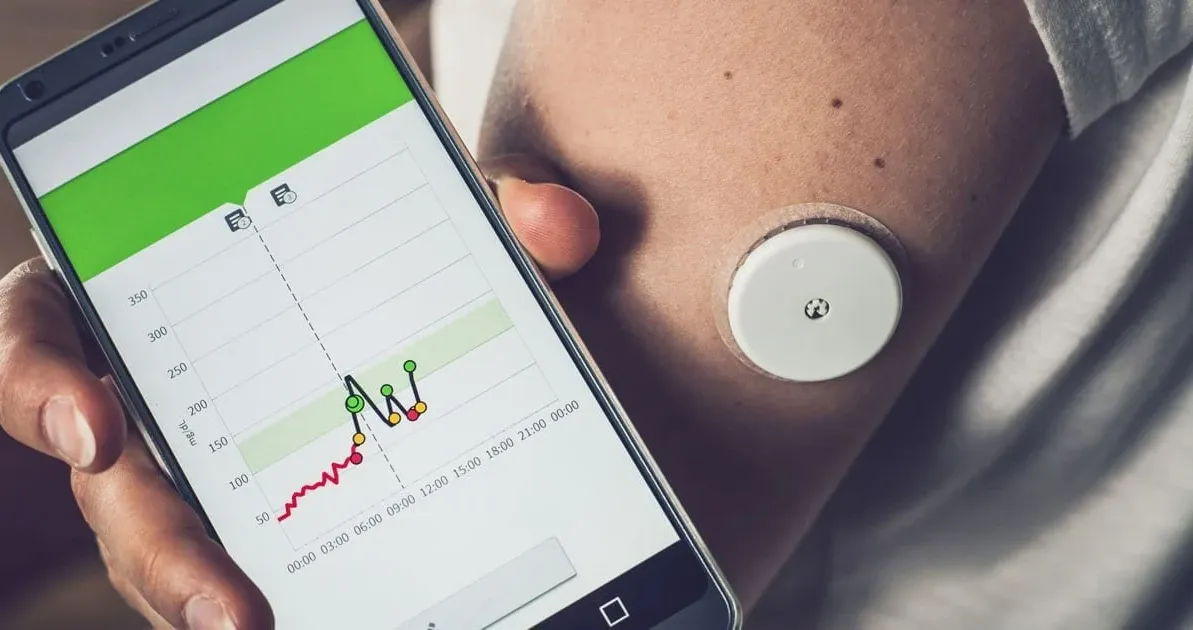
Type 2 diabetes: Health will finance continuous glucose monitoring devices
Health will finance from January the continuous glucose monitoring devices for type 2 diabetes
To do this, he has indicated that they are currently training all primary care medical and nursing professionals, fundamentally nursing, to help extend these devices because the management of these patients with type 2 diabetes is carried from health centers.
Health centers will dispense the meters
They will be the ones who offer these devices to the patients who consider that they meet the necessary requirements: type 2 diabetes, insulin -dependent, at least six blood glucose controls a day and be people with the capacity to acquire the necessary knowledge for their use or their caregivers.
Health has indicated that the health centers will dispense, for free, the devices, that "we must renew them every fifteen days."He also pointed out that "a sufficient amount is usually delivered for 2 and a half months."
This type of flash device for people with diabetes 1 has been financed for two years.
Navarra will carry out this financing according to the prioritization approved by the Interterritorial Health Council on October 7 of this year.
how will the process be
Thus, as the department explained, it will begin with patients with visual deficit, functional limitations, disability, dependence or cognitive impairment that limits or prevents them from performing digital punctures or recognizing, expressing or acting in a situation of hypoglycemia;Patients with a history of serious hypoglycemia, defined as those who need health care or help from a third person for resolution (1 episode or more in the last 2 years);patients under 18 years of age;and pregnant women or in pregnancy programming.
It will continue with patients suffering from unnoticed or repetition hypoglycemia, understanding by such those that occur at least 4 times per week or when they have 10% of the glycometer readings values below 70 mg/dl after performing aaverage of 6 hair glycemia controls per day;Patients who carry out risk work activities whose hypoglycemia can cause a situation of danger to them or for third parties.
To continue with patients suffering from concomitant processes of high complexity and clinical instability who may hinder their hypoglycemic control.
Already, to end, throughout 2024, it will be extended to other patients.These devices have to be financed for all insulin -dependent patients who meet the established requirements, on December 31, 2024, according to the Ministry of Health.
reactive strips are continued through primary care
On the other hand, Health has reported that the reactive strips used to measure blood glucose are continued to be dispensed in health centers, as already had been doing.The novelty is that from now on they are included in the patient's medical history, which will allow better management and control by his nurse.
Beyond that these devices are aimed at a small group that has to meet specific requirements, the department remembers that the approach to diabetes is very wide, both from the preventive and treatment point of view, which is focused on everyone andAll those affected by diabetes.
42.004 diagnosed patients
As of May of this year, the number of living patients diagnosed with diabetes in Navarra was 42,004 (6.5% of the total population), of which 2,218 (5.5%) correspond to patients diagnosed with diabetesMellitus (DM) Type 1 and 39,786 (94.7%) of type 2 diabetes mellitus. Patients with type 2 diabetes over 40 represent 10% of that population.
The follow -up of the patients diagnosed with DM1 is carried out by the hospital services of endocrinology, both pediatric and adults, with a diabetes section included in the HUN adult endocrinology service and endocrinology consultations of the reigning hospitals Reina Sofía deTudela and García Orcoyen de Estella, with primary care support.The diabetological education of this group is carried out by hospital care nursing personnel.
The monitoring of DM2 diagnosed patients corresponds to primary care with hospital care support, both in person and non -face -to -face, for concrete problems or doubts, in protocolized cases usually associated with complex complications or treatments.
Due to its high prevalence, it was included as one of the profiles of the chronicity strategy of Navarra, with an initial target population that included patients with two other associated pathologies of those prioritized and as a proper profile of diabetes to those patients those patientswith a longer evolution time that were at high levels of care needs.
Diabetological education is mainly carried out by primary care nursing staff, with family medicine participation, with a protocolized methodology and contents, both individually and in a group.
It covers both the way of facing the disease, and the achievement of attitudes and skills necessary for the patient's self -care, depending on the evolutionary moment, type of treatment and/or complications of the disease.A care plan is elaborated, according to the nursing diagnosis, marking objectives and programming interventions.

11/09/2022 10:58 a.m.
@fer - Diabetes Tipo 1 desde 1.998 | FreeStyle Libre 3 | Ypsomed mylife YpsoPump + CamAPS FX | Sin complicaciones. Miembro del equipo de moderación del foro.
Co-Autor de Vivir con Diabetes: El poder de la comunidad online, parte de los ingresos se destinan a financiar el foro de diabetes y mantener la comunidad online activa.
Well at least they don't forget normal type 2 diabetics.They will continue to see our feet every 3 months and if we suffer from hypoglycemia they are there to receive us with open hands (it is what they told me)

11/11/2022 12:33 a.m.
Diabetes Tipo 2 (2014) con 38 años - Neuropatía Diabética (2013) - Polineuropatía Diabética sensitiva axonal moderado-grave en miembros inferiores (2021) - Jubilado en 2022 con 45 años. (Synjardy (Mettformina) - Trulicity - Ozempic - Gabapentina). HBA1c: 4,5%. Discapacidad del 35% - Presbicia con 45 años (ya no veo de cerca, pero no hay retinopatía diabética en los ojos). Abuela materna y Abuela paterna e tíos diabéticos tipo 1

